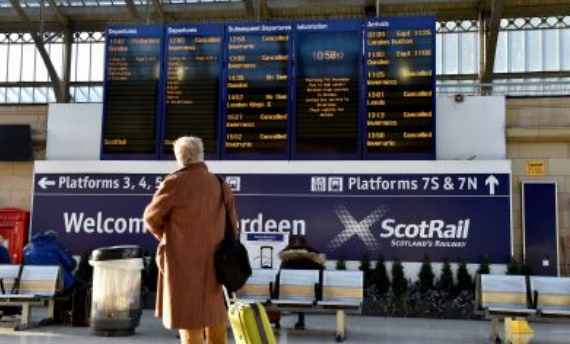Hard-pressed commuters at train stations across the north and north-east will no longer have to spend a penny to go to the loo – after it was announced that toilet charges would be phased out.
ScotRail has confirmed it is keen to scrap pay as you use toilets at all the stations it operates.
While Network rail recently took the decision to get rid of the charges at the likes of Edinburgh Waverley and Glasgow Central.
Now following pressure from local politicians, ScotRail will follow suit with its stations including Aberdeen, Elgin, Stonehaven and Inverness as well as many more across Scotland.
Most of these toilets operate with an automatic security barrier which lifts after 20 pence is paid into a machine allowing access to the facilities.
At Network Rail stations charges can range from 30p to 40p which include the likes of King’s Cross, Euston, Liverpool Street, Paddington and Waterloo – all in London – as well as Liverpool Lime Street, Leeds, Manchester Piccadilly and Glasgow and Edinburgh in Scotland.
>> Keep up to date with the latest news with The P&J newsletter
Aberdeen Central SNP MSP Kevin Stewart wrote to ScotRail bosses calling for the charges to be scrapped across all ScotRail stations.
Last night he said that people across the country would welcome the changes.
He said: “I am delighted that ScotRail will scrap toilet charges in Aberdeen and across all their stations in Scotland.
“I wrote to ScotRail as nobody should be penalised for using a toilet and I am glad that ScotRail have recognised this.
“Folk across Aberdeen and Scotland will welcome this useful change in ScotRail policy.”
In a response to Mr Stewart’s letter, ScotRail’s commercial director Lesley Kane confirmed they were looking to ditch the charges across their stations.
She wrote: “I acknowledge your comments about Network Rail’s decision to scrap toilet charges at all stations under their management.
“I am very pleased to confirm that ScotRail will be looking to withdraw toilet charges at the stations we operate, including Aberdeen.
“Before we are able to do so, we need to make a full safety assessment to ensure appropriate access and reduce the potential of anti-social behaviour.”
